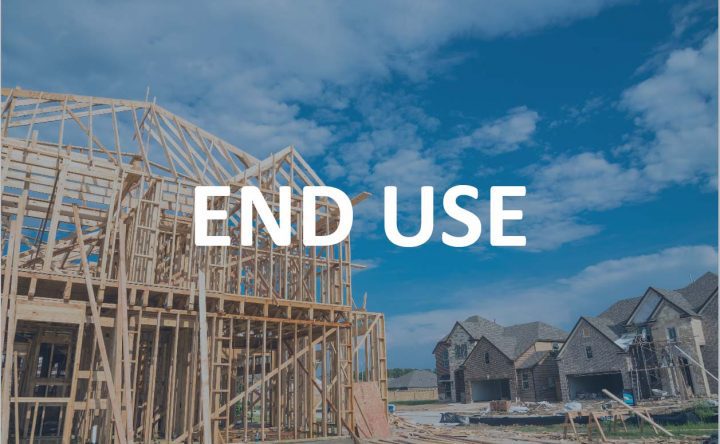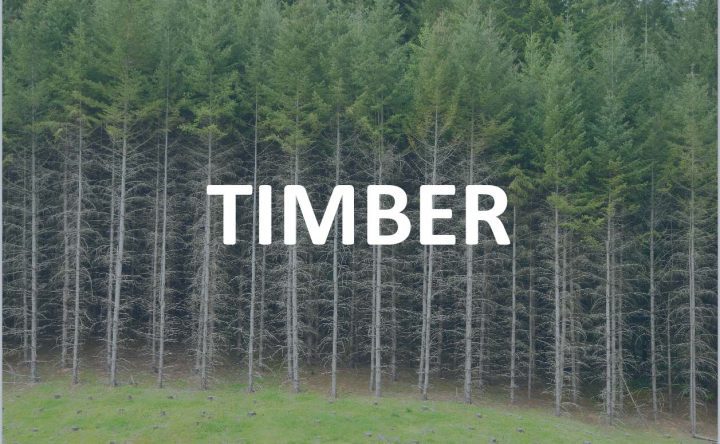Redfin, the Seattle-based, technology-powered real estate company, reported that the median home-sale price in the four-week period ending December 5, 2021 hit a new all-time record high of $360,250 — up 14% year-over-year and up 30% for the same period of time in 2019. At the same time, new listings of homes for sale were down -7% year-over-year but up 11% from 2019.
Wood Markets News
Mortgage Credit Availability Declines in November
According to the latest Mortgage Bankers Association’s Mortgage Credit Availability Index (MCAI), which analyzes data from Ellie Mae’s AllRegs® Market Clarity® business information tool, mortgage credit availability declined in November. The MCAI fell by -0.6% in November to a reading of 124.9. A decline in the MCAI indicates that lending standards are tightening, while increases in the index are indicative of loosening credit.
University of Michigan Preliminary Consumer Sentiment Index Increases for December
The University of Michigan today (Friday 12-10-21) released its preliminary Consumer Sentiment Index (CSI) for December. The CSI increased to a reading of 70.4 in December, up from 67.4 in November. This is a month-over-month increase of 4.5%, but it is down -12.8% year-over-year (80.7 in December 2020). The Current Economic Conditions increased to a reading of 74.6 in December, up from 73.6 in November.
Consumer Price Index Increases 0.8% in November, Rises 6.8% Year-Over-Year
The U.S. Bureau of Labor Statistics (BLS) reported on Friday (12-10-21) that the Consumer Price Index for All Urban Consumers (CPI-U) increased 0.8% in November on a seasonally adjusted basis after rising 0.9% in October. Over the past 12-months, the all-item index has increased 6.8% before seasonal adjustment. The largest 12-month increase since the period ending June 1982.
lida Group Holdings Buys Majority Stake in Russian Forest Products
Iida Group Holdings (IGH), a leading Japanese real estate development firm, announced on Wednesday (12-8-21) that it has received Russian Government approval and is buying a majority stake (75%) in Russian Forest Products for nearly $530 million. IGH says the acquisition will provide the company with access to one of the world’s largest forests, spanning roughly four million hectares in the Russian Far East.
Huu-ay-aht First Nations to Honor Major Portion of B.C. Government’s Old-Growth Forestry Deferral
The Bamfield-based Huu-ay-aht First Nations have agreed to honor a major portion of the B.C. provincial government’s recent decision on old growth forestry deferral. The determination is preliminary and only refers to Huu-ay-aht First Nations interests, not those of any other First Nations. Chief Councilor Robert Dennis Sr. noted that much of the area set aside for deferral is already protected or not planned for harvest within the next two years.
New Zealand Log Export Volume and Prices Continue to Decline
New Zealand’s forestry industry continues deal with significant declines in the demand for export logs. China remains New Zealand’s largest customer for logs. Chinese construction companies, several with copious amounts of debt, are teetering on failure, without government intervention. As a result, the expectation for construction activity in China in 2022, is approximately 20% or more below 2021 levels.
Canadian Investment in Building Increases 1.6% in October
Statistics Canada (StatsCan) today (12-9-21) reported that investment in building, after five consecutive months of declines, posted an increase of 1.6% to $17.8 billion (CAD) in October. Quebec led the way with a 3.5% increase. On a constant dollar basis (2012=100), investment in building construction increased 1.6% to $12.3 billion. Residential construction investment rose 1.4% to $12.9 billion in October.
New Zealand Researchers Test Cross-Laminated Timber Walls as a Way to Reduce Earthquake Risk
New Zealand’s goal of becoming carbon-neutral, as well as reducing earthquake risk, has led to new research with broader implications on the use of cross-laminated timber (CLT) walls. According to University of Canterbury’s Seismic Associate Professor Minghao Li and his team, the eco- and cost-friendly alternative to steel and concrete could credibly be used in low-rise buildings.
30-Year and 15-Year Mortgage Rates Down Slightly in the Week Ending December 9, 2021
Freddie Mac has released its Primary Mortgage Market Survey (PMMS) for the week ending December 9, 2021. The PMMS reports that the 30-year fixed-rate mortgage averaged 3.10% with an average 0.7 point for the week ending December 9, 2021, down slightly from last week when it averaged 3.11%. A year ago at this time, the 30-year FRM averaged 2.71%.






